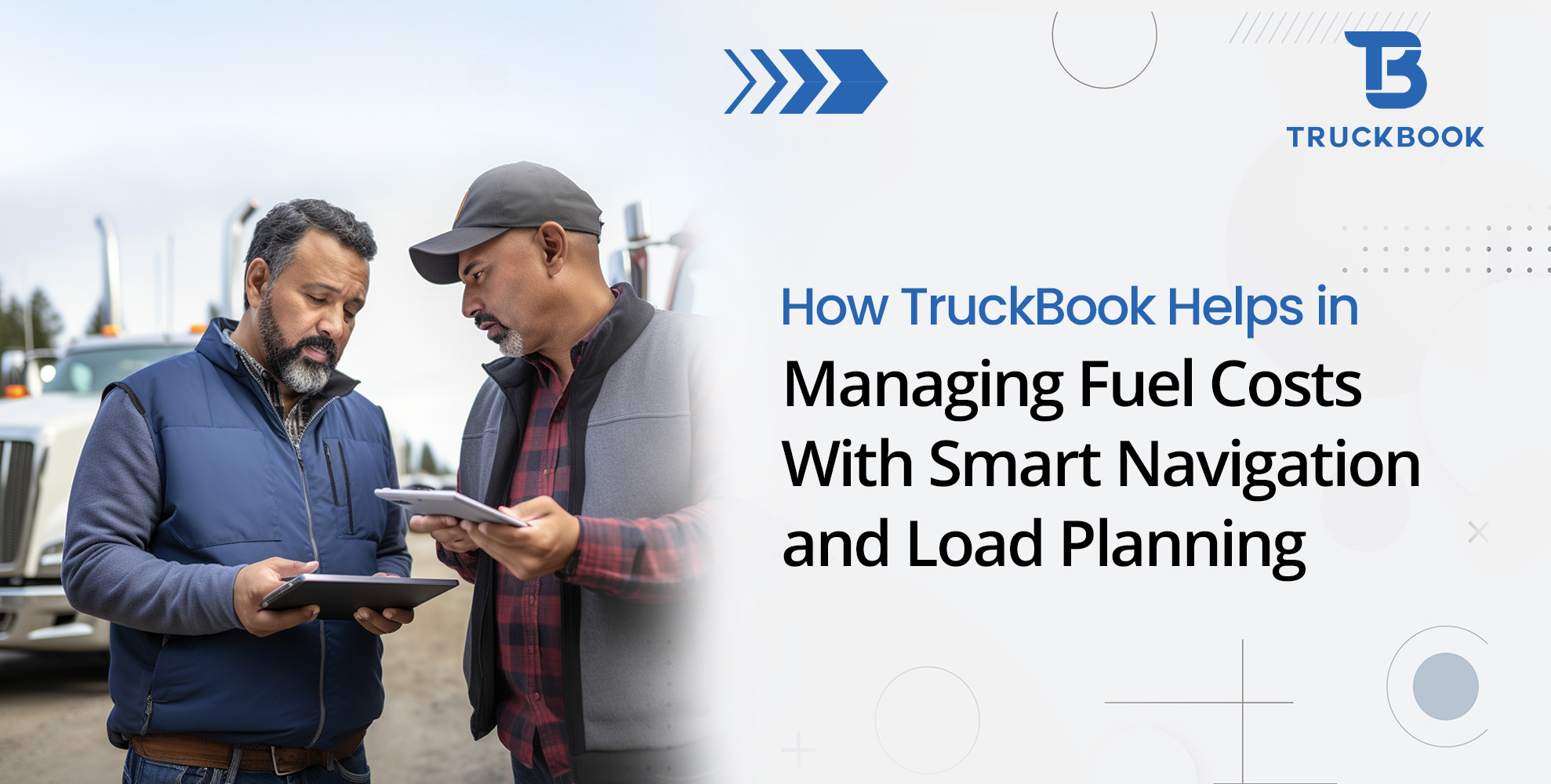In the world of trucking, fuel isn’t just another expense it’s one of the biggest line items on any fleet’s balance sheet. Whether you’re managing a small fleet of five or a network of 500 vehicles, even minor inefficiencies in routing or load planning can drive up fuel consumption and cut into your bottom line.
This is where TruckBook steps in as a powerful solution. Built for fleet owners, dispatchers, and drivers alike, TruckBook combines smart navigation, real-time analytics, and intelligent load planning to help reduce unnecessary fuel burn and improve operational efficiency.
If you’ve been wondering how to keep your fuel costs in check, let’s take a closer look at how TruckBook makes that happen.
Smart Navigation: Cutting Miles Without Cutting Corners
Traditional GPS systems might get your trucks from point A to point B, but they often ignore fuel efficiency and real-time road conditions. TruckBook goes several steps further with smart navigation designed for commercial vehicles.
Here’s how it helps:
- Truck-Specific Routing: Avoids low bridges, restricted zones, and traffic bottlenecks based on your truck’s size and weight class.
- Fuel-Efficient Paths: Recommends routes with fewer stops, steady speeds, and less congestion to improve MPG.
- Live Traffic Updates: Adjusts in real time to detours and slowdowns, preventing idle time that wastes fuel.
These small improvements add up, especially when applied across an entire fleet.
Load Planning that Prioritises Efficiency
An often-overlooked factor in fuel consumption is how a load is scheduled, routed, and distributed. Poor load planning can result in half-empty trailers, unnecessary deadhead miles, or unbalanced axle weights—all of which increase fuel usage.
TruckBook’s load planning features tackle this head-on by:
- Optimizing Load Assignments: Ensuring the closest and most suitable truck takes the job, reducing travel distance.
- Balancing Weight Distribution: Helping maintain even weight for better fuel economy and vehicle handling.
- Minimizing Deadhead Runs: Suggesting nearby backhauls or loads to eliminate empty return trips.
By managing the load smartly, TruckBook ensures trucks run fuller, smarter, and leaner—leading to lower fuel bills.
Fuel Station Locator
One of TruckBook’s more underrated but incredibly practical tools is its fuel station finder, which includes:
- Nearby truck-friendly fuel stations
Instead of guessing or stopping at the most convenient (and often most expensive) location, drivers can choose the most economical fuel stop along their route, without significant detours.
Over time, these smarter fuel stops alone can result in thousands of dollars saved per truck annually.
Integrated Maintenance Reminders to Prevent Fuel Loss
Poorly maintained trucks burn more fuel. Low tire pressure, dirty air filters, and overdue oil changes reduce engine efficiency. TruckBook helps reduce these hidden fuel drains by:
- Scheduling automated maintenance reminders
- Logging past service history
Proactive upkeep keeps engines running efficiently and ensures you’re getting every mile per gallon possible.
Customizable KPIs for Fuel Cost Monitoring
No two fleets are the same, so TruckBook allows you to customize key performance indicators related to fuel usage. These metrics help monitor:
- Fuel used per load
- Cost per mile
- Fuel efficiency by route
- Driver fuel performance
With this data, you can fine-tune operations, identify patterns, and uncover waste, putting you in complete control of fuel spending.
Conclusion: Drive Further While Spending Less
In today’s volatile fuel market, managing costs isn’t optional—it’s essential for survival. TruckBook makes it easier than ever to reduce fuel spend through intelligent route planning, smarter load distribution, efficient fuel sourcing, and real-time driver behaviour analysis.
Whether you’re a fleet owner aiming to protect profit margins or a driver who wants to maximise earnings, TruckBook gives you the digital tools to save more on every single trip.








